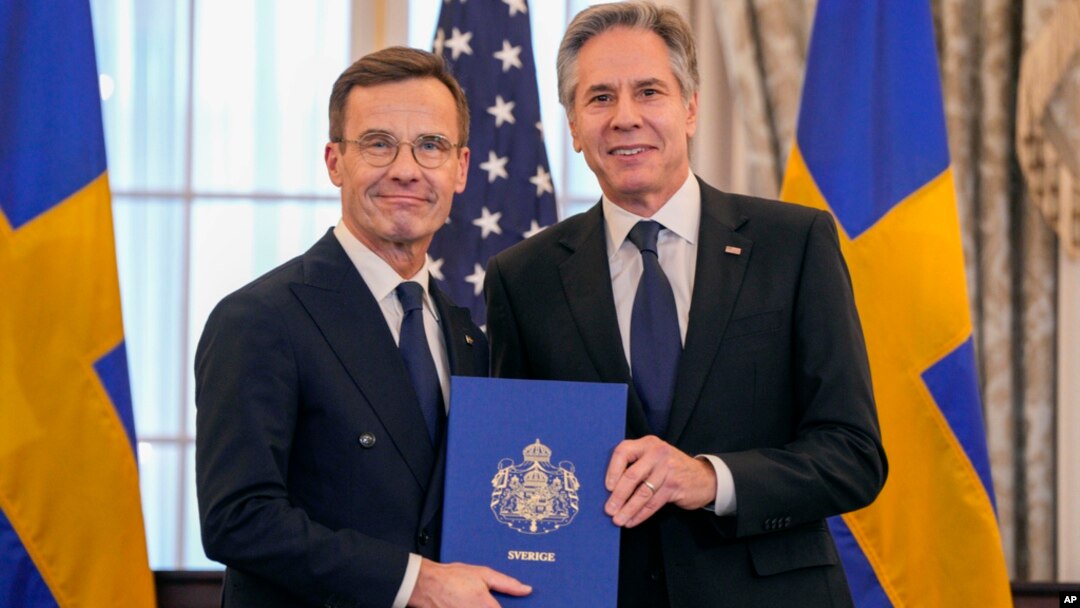Sweden on Thursday ended decades of post-World War II neutrality and became the 32nd member of NATO, as the West’s key military alliance confronts the third year of Russia’s invasion of Ukraine.
Swedish Prime Minister Ulf Kristersson was in Washington for a ceremony at which the Nordic country’s “instrument of accession” to NATO was officially presented at the State Department.
Later, Kristersson was set to visit the White House and then in the evening be a guest of President Joe Biden at his State of the Union address to Congress.
Biden said in a statement that when Russian President Vladimir Putin invaded Ukraine in 2022 “he thought he could weaken Europe and divide NATO. Instead, in May 2022, Sweden and Finland—two of our close partners, with two highly capable militaries—made the historic decision to apply for full NATO membership,” and both have now joined.
“With the addition of Sweden today,” Biden said, “NATO stands more united, determined, and dynamic than ever—now 32 nations strong.”
Your browser doesn’t support HTML5
Sweden Formally Joins NATO, Prompted by Russia’s Invasion of Ukraine
“Today, we once more reaffirm that our shared democratic values—and our willingness to stand up for them—is what makes NATO the greatest military alliance in the history of the world,” Biden said. “It is what draws nations to our cause. It is what underpins our unity.”
Biden, in his speech to Congress, is expected to cite Sweden's decision to join NATO as a call to reluctant Republican lawmakers to approve another $60 billion in aid to Ukraine.
Ukrainian President Volodymyr Zelenskyy welcomed Sweden's accession to NATO, which his own country is hoping to join after the war ends.
"Today, it is important to note that one more country in Europe has become more protected from Russian evil," Zelenskyy said in his evening address.
Sweden's NATO membership had been held up due to objections by NATO members Turkey and Hungary.
Turkey expressed concern that Sweden was harboring and not taking enough action against Kurdish groups that it regards as terrorists, and Hungary's populist President Viktor Orban has shown pro-Russian sentiment and not shared the alliance's determination to support Ukraine.
After months of delay, Turkey ratified Sweden's admission earlier this year, and Hungary did so in recent days.
Some material in this report came from The Associated Press and Agence France-Presse.


